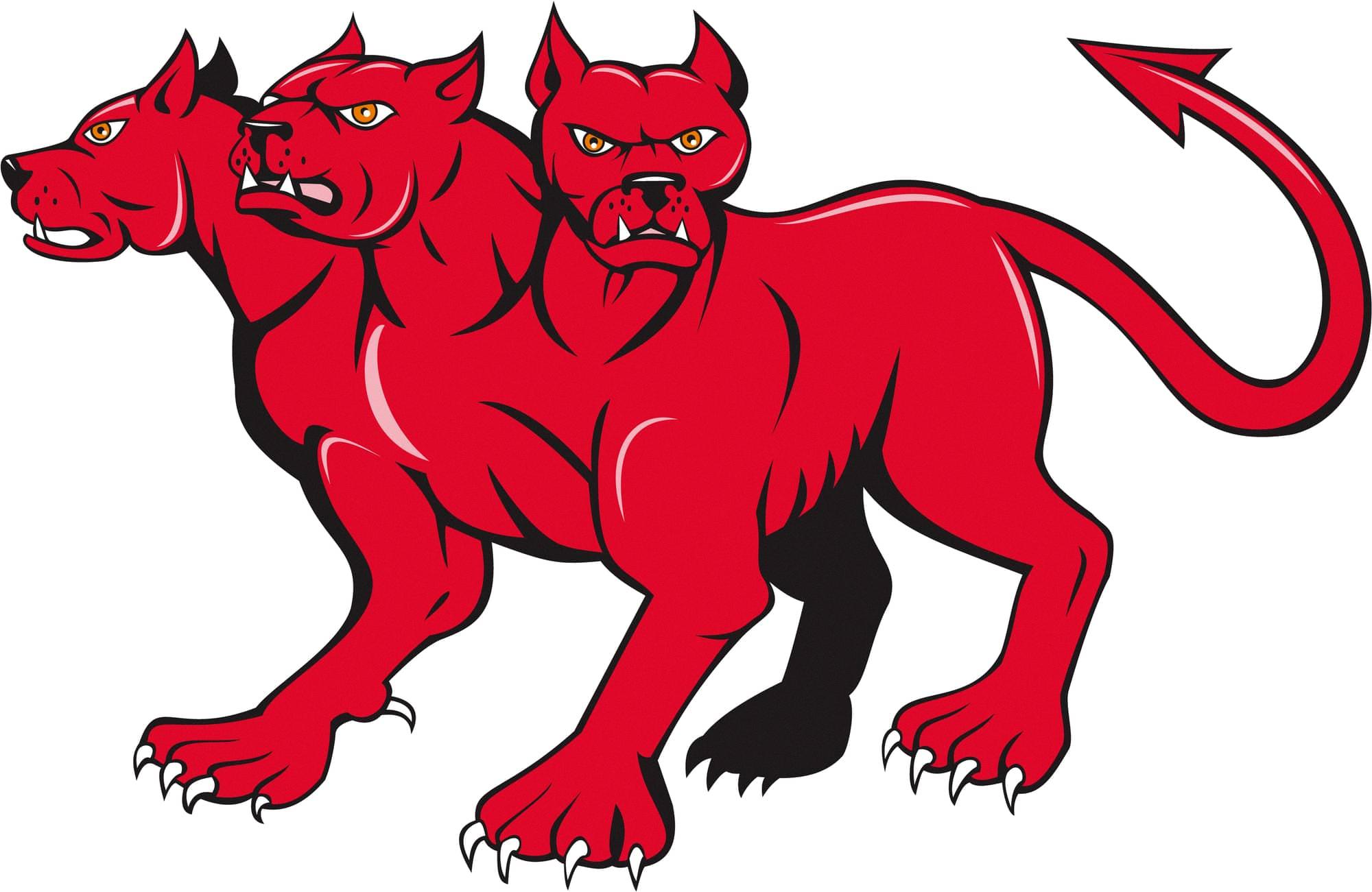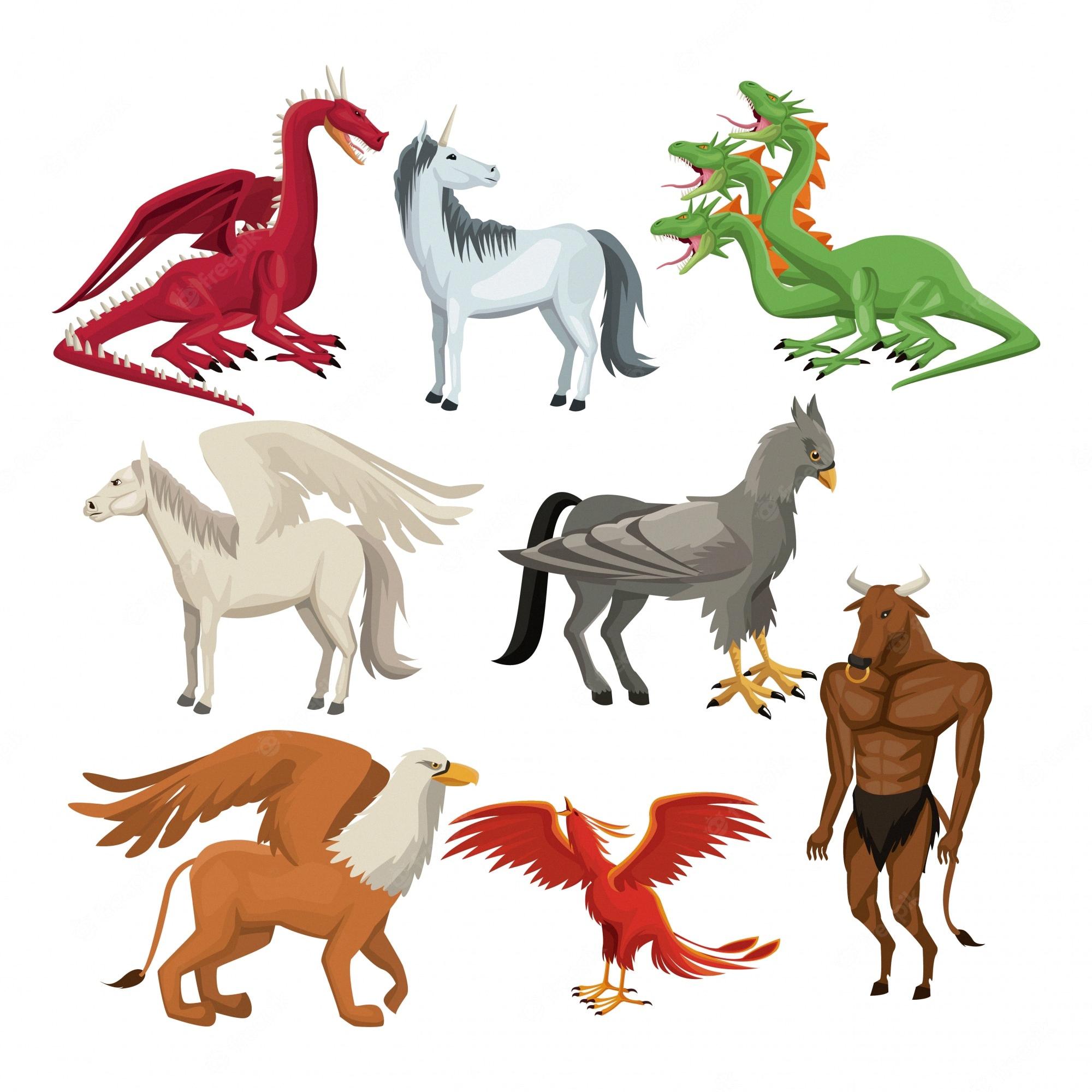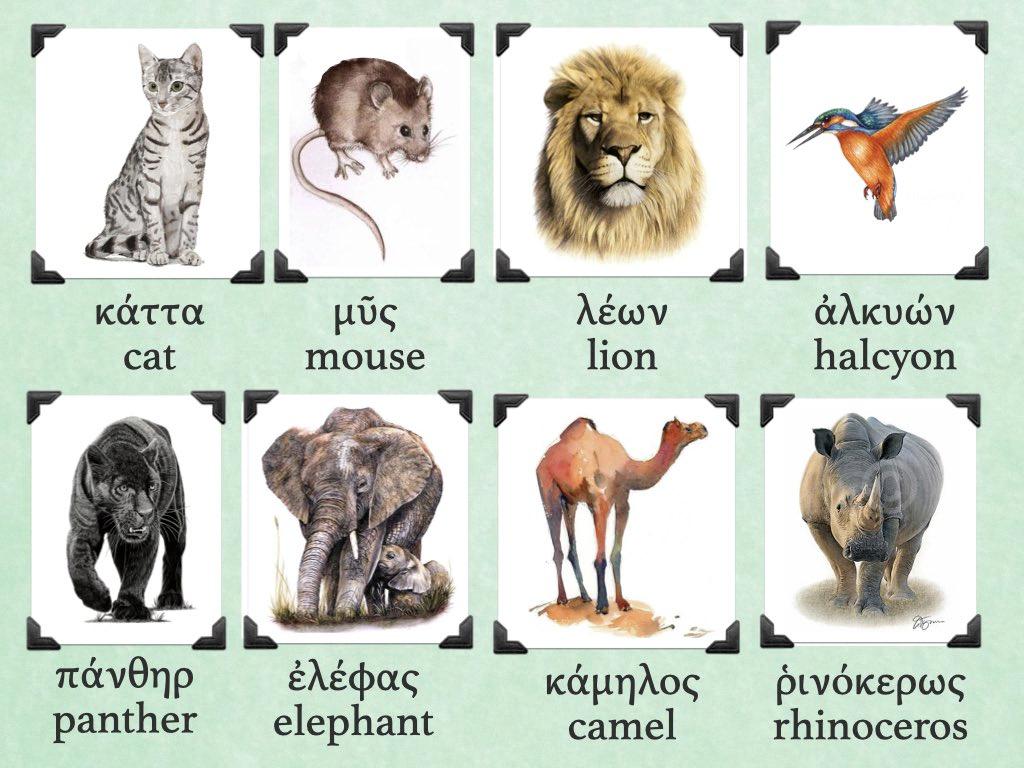Greek mythology is full of legendary creatures and deities, but what about the animals that roamed the land during ancient times? The Greeks had a deep fascination with animals and their significance in their culture, art, and religion.
The word “therion” in Greek means “wild animal” or “beast”, and it is often used to describe the creatures that were feared and respected by the ancient Greeks. These animals played a significant role in Greek mythology and were often associated with the gods and goddesses.
One of the most famous animals in Greek mythology is the mighty lion, wich was the symbol of the goddess Hera. It was believed that the lion was a representation of the queen of the gods’ power and strength. The Nemean Lion, a monstrous beast with impenetrable skin, was slain by the hero Heracles as one of his twelve labors.
Another prominent animal in Greek mythology is the eagle, which was the symbol of Zeus, the king of the gods. The eagle was believed to have the power to fly to the heavens and deliver messages from the gods to mortals. It was also believed that Zeus transformed himself into an eagle to abduct his love, the goddess Ganymede.
The serpent was another important creature in Greek mythology, often associated with the goddess Athena. The serpent was believed to have healing powers and was also seen as a symbol of wisdom and knowledge. In some myths, the serpent was depicted as the guardian of sacred places or objects, such as the Oracle of Delphi.
The dolphin, which is often associated with Poseidon, the god of the sea, was also a significant animal in Greek culture. The Greeks believed that dolphins were a sign of good luck and protection for sailors, and they were often depicted in art and literature.
Animals played a significant role in Greek mythology and culture. From the mighty lion to the wise serpent, these creatures were revered and respected by the ancient Greeks. Even today, we can see the influence of these animals in modern culture, art, and literature.
The Ancient Greek Word for Animal
The Ancient Greek word for animal is “θήρ” (thḗr). This word is derived from the roots “thḗr” meaning “animal” or “beast” and the diminutive suffix “-ion”. In Ancient Greek, the term “θήρ” was used to refer to any living creature that was not human, including both wild and domesticated animals. The word has been used in a wide range of contexts throughout Greek literature and culture, from epic poetry and mythology to scientific and philosophical texts. Today, the word “θήρ” still holds an important place in the study of Ancient Greek language and culture.
Source: kidslovegreece.com
The Meaning of the Greek Word Beast
The Greek word for “beast” or “wild animal” is “θηρίον”, pronounced as “therion” in English. This word is commonly used in ancient Greek mythology and literature to refer to any type of animal that is considered wild or fierce. In modern times, “therion” is still used in various contexts, such as in the name of the Swedish metal band “Therion”. The word has also been borrowed into other languages, including English, where it is often used to describe animals or creatures with savage or monstrous characteristics.
The Greek Animal Symbol
The Greek animal symbol is the dolphin. It is a friendly marine creature that has been used to represent Greece for centuries. While the exact reason as to why the dolphin was chosen as the symbol is unclear, it is believed that it has roots in Greek mythology and ancient beliefs. Dolphins were considered sacred animals in Greek mythology and were associated with the god Apollo, who was the god of music, poetry, prophecy, and healing. In ancient times, dolphins were also seen as protectors of sailors and were believed to have the power to calm the sea and help ships safely navigate through rough waters. Today, the dolphin remains a beloved symbol of Greece, representing the country’s connection to the sea and its rich history and culture.
The Role of Animal Gods in Religion
In Greek mythology, an animal god is commonly referred to as a zoomorphic deity. These deities are often depicted with the head and body of an animal, but with human-like qualities and abilities. One of the most well-known zoomorphic deities is the Egyptian god Anubis, who is depicted with the head of a jackal. Another example is the Greek god Pan, who is often depicted with the legs and horns of a goat. In Greek mythology, the goddess Artemis is also closely associated with animals, particularly as the goddess of the hunt. While zoomorphic deities are common in mythology, they are not exclusive to one particular culture or religion, and can be found in various forms throughout history.
The Hebrew Word for Animals
The Hebrew word for animals is חיה (chaya). This word is the generic term for any kind of animal, including domesticated ones like cows, dogs, and cats, as well as wild animals like lions, bears, and wolves. In Modern Hebrew, the word חיה is commonly used to refer to all animals, reardless of whether they are domesticated or wild. However, if one wants to specifically refer to a wild animal, the Hebrew term for that is חַיַּת בַּר (chayat bar), which literally means “an animal of the wild.” It’s important to note that the word חיה is often used in the Bible to refer to living creatures in general, including humans.
Source: freepik.com
The Root Word of Animal
The root word of “animal” is believed to come from Latin. There are two possible Latin roots that could have contributed to the formation of the word “animal”. One is “anima” which means “breath” or “spirit” and the other is “animus” which means “mind” or “soul”. Over time, the use of “animal” became associated with the characteristics of living creatures that possess breath, spirit, mind or soul. Today, the word “animal” is commonly used to describe any living organism that is not a plant or a human being.
The Greek Origin of the Word ‘Anima’
Anima is actually a Latin word, not a Greek word. The word Anima is derived from the Latin language and it means “animating principle” or “life force”. It is often associated with the incorporeal essence of a living being, which is also known as the soul. The Greek equivalent of Anima is Psyche, which was also used to refer to the soul in ancient Greek philosophy and mythology. However, while Anima and Psyche are related concepts, they are not the same word and come from different linguistic traditions.
Alternative Names for Animals
Another word for animal is creature. This term can refer to any living being that is not a plant or a human. Creatures can include mammals, birds, insects, fish, reptiles, and amphibians. The term can also be used to describe fictional creatures such as monsters or mythical creatures. Additionally, the term critter is often used informally to refer to animals, particularly those that are small or cute. Other synonyms for animal include quadruped, varmint, and vertebrate.
The God of Beasts
In Greek mythology, there is not a specific god of beasts, but several gods and goddesses are associated with animals. The god most commonly associated with wild creatures is the god of wine and fertility, Dionysus. He is often depicted with wild animals such as panthers, lions, and tigers, and is said to have the power to transform humans into animals. Artemis, the goddess of the hunt, is also closely linked to animals, particularly deer, and is often depicted with a bow and arrow. Another goddess associated with animals is Demeter, the goddess of agriculture and harvest, who is often shown with a snake, pig, or horse. Other gods and goddesses, such as Zeus, Apollo, and Athena, also have connections to specific animals and are sometimes depicted in animal form.
Source: twitter.com
The Greek God of Dogs
The Greek goddess of dogs is Hecate. She is also known as the goddess of crossroads and entryways. In Greek mythology, Hecate is often depicted with three heads, which can appear as cows, horses, boars, serpents, or dogs. However, her association with dogs is one of her more prominent characteristics. Dogs were considered sacred animals to Hecate, and in ancient Greece, they were often sacrificed in her honor. Hecate was also believed to have the ability to transform into a dog herself. Therefore, she is commonly known as the Greek goddess of dogs.
The Greek God of Nature
The Greek god for nature is Demeter. This deity was highly respected in ancient Greek mythology for being the goddess of agriculture, fertility, and the sacred law. Demeter was also associated with the changing of seasons, particularly the transition from winter to spring. She was believed to have the power to bring forth new life and growth from the earth, ensuring the continuation of the cycle of life. As the goddess of nature, Demeter played a vital role in maintaining the balance of the natural world and providing sustenance for humanity.
Sacred Animal of Zeus
Zeus, the king of the gods in Greek mythology, had the eagle as his sacred animal. The eagle was a symbol of power and strength, qualities that were also attributed to Zeus. The giant, golden eagle was not only revered but also served as Zeus’ personal messenger and animal companion. Its association with Zeus was so strong that it was often depicted alongsie him in art and literature. The eagle’s ability to soar high in the sky made it a fitting symbol for the god of the sky and thunder, who could control the weather and hurl lightning bolts at will.
Conclusion
Animals played a significant role in the ancient Greek culture and mythology. They were used to symbolize different concepts and beliefs, and were often depicted in art and literature. From the powerful lion representing courage and strength, to the graceful dolphin representing intelligence and friendship, animals were an integral part of Greek society. The Greek language itself even has a word for wild animals or beasts, “Therion”. the significance of animals in Greek culture serves as a reminder of the importance of nature and its connection to human life.



